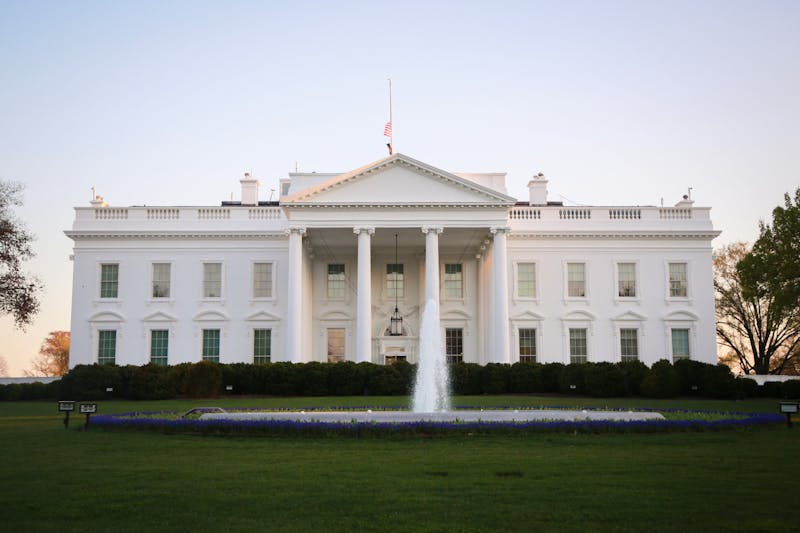Penn for Palestine brought Josh Ruebner — author and national advocacy director of U.S. Campaign to End the Israeli Occupation, a nonprofit coalition — to campus yesterday for a lunchtime discussion of his book “Shattered Hopes: Obama’s Failure to Broker Israeli-Palestinian Peace.”
Related: Penn for Palestine screens ‘Roadmap to Apartheid’
This recently published book takes a vocal stance against President Barack Obama’s policy on the Middle East. It particularly criticizes how the administration has changed over the course of the years, moving toward the path of its predecessors.
College senior Sarah Shihadah, co-president of Penn for Palestine, said she hoped the event would “raise a lot of issues that people who were not interested in the Middle East previously will find informative. The United States gives more aid to Israel than any other country in the world.”
Related: Students show solidarity with Palestinians, Israelis
In line with his book’s suggestive title, Ruebner started off his talk on a strong note. He characterized the current relations between Israel and Palestine by “Israel’s total domination of all of historic Palestine, exercising one hundred percent control.”
“This is what apartheid is,” he added.
Regarding the Obama administration, Ruebner blamed certain institutionalized constraints — such as a lack of bipartisan cooperation — that might have cornered the president into changing his Middle East policy after his first term.
However, Ruebner still expressed his disappointment with the president, whom he thinks seems to have lost the will to create real change.
Related: Pro-Palestinian groups stage symbolic barrier on College Green
“The peace process is not aimed at establishing peace,” Ruebner said. “It’s aimed at facilitating Israel’s colonization of Palestine.”
Ruebner first contacted Penn for Palestine so that he could arrange a time to speak with Penn students while he was in Philadelphia for his book tour, expecting “to get a lot of questions and feedbacks from students because he knows that there are so many politically active students at Penn,” Shihadah said.
Regarding what could be taken as a bias in Ruebner’s arguments, Shihadah acknowledged that “there are always people who feel uncomfortable when challenging the status quo.”
Penn for Palestine, for its part, still aims at affording students opportunities to form their own opinions, based on facts — especially in matters as pressing and complex as the Israel-Palestine conflict.
“People should be encouraged to see what is happening right now,” she said.
The Daily Pennsylvanian is an independent, student-run newspaper. Please consider making a donation to support the coverage that shapes the University. Your generosity ensures a future of strong journalism at Penn.
DonatePlease note All comments are eligible for publication in The Daily Pennsylvanian.







